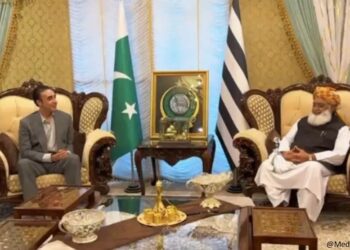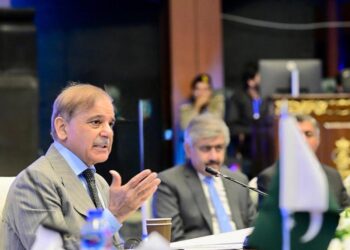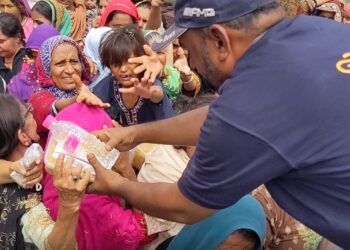Ambreen Khan
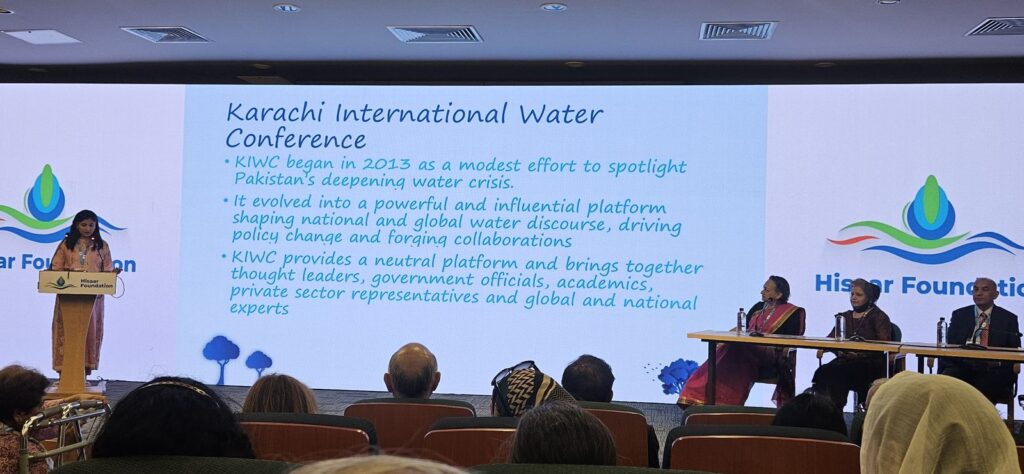
Karachi: The 7th Karachi International Water Conference (KIWC) opened on Tuesday under the theme “Water, People, Health – Coping with the Floods.” Organized by the Hisaar Foundation in collaboration with the Karachi School of Business and Leadership (KSBL), the two-day event convenes government representatives, international experts, civil society leaders, private sector stakeholders, academics, and youth to deliberate on water security, public health, and climate adaptation.
The opening plenary highlighted the Hisaar Foundation’s evolution as a pioneering organization working on water, food, and livelihoods. In her keynote address, Simi Kamal, Founder and Chairperson of Hisaar Foundation, said the conference comes at a “critical juncture” and called for a return to nature-based solutions. She emphasized a paradigm shift from “Think Global, Act Local” to “Think Local, Act Global.”
Nadira Panjwani, Founder and Managing Trustee of the Panjwani Charitable Foundation and Trusts, spoke about the development of the Panjwani–Hisaar Water Institute as Pakistan’s premier water research center. Ashraf Kapadia, former Chairman of Hisaar Foundation, reflected on the organization’s two-decade journey, while Sanaa Causer, External Relations Director, traced the KIWC’s progress since its inception in 2013.
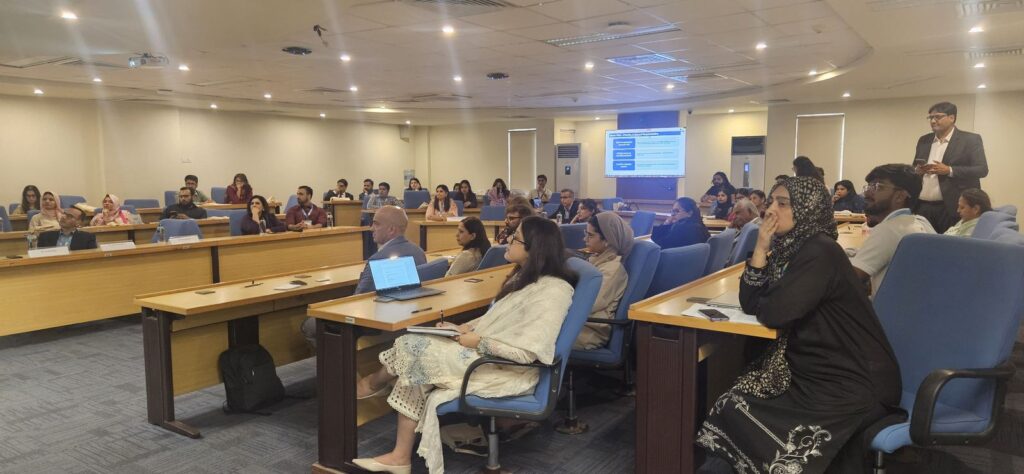
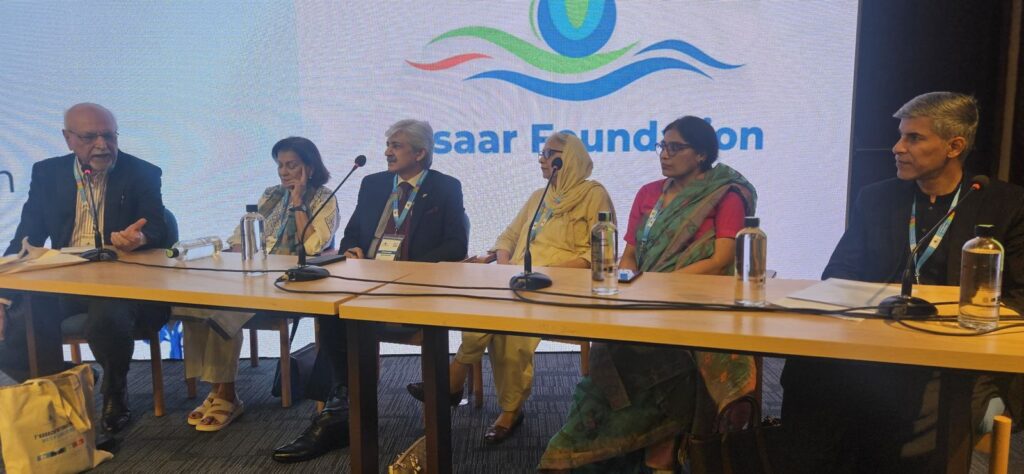
The second plenary, titled “Citizens’ Commission on Floods: Impact on Water, People and Health,” was chaired by Senator Mushahid Hussain. Framed as a “charge sheet against society,” the session opened with a poignant video asking, “Aap hamare liye kaisi duniya chhor kar ja rahe hain?” — What kind of world are you leaving for us?
Panelists including Ehsan Leghari, Rafay Alam, Yasmeen Qazi, Noman Ahmed, Afia Salam, Hammad N. Khan, and Syeda Malaika Zehra explored the human and environmental costs of water mismanagement and climate disasters.
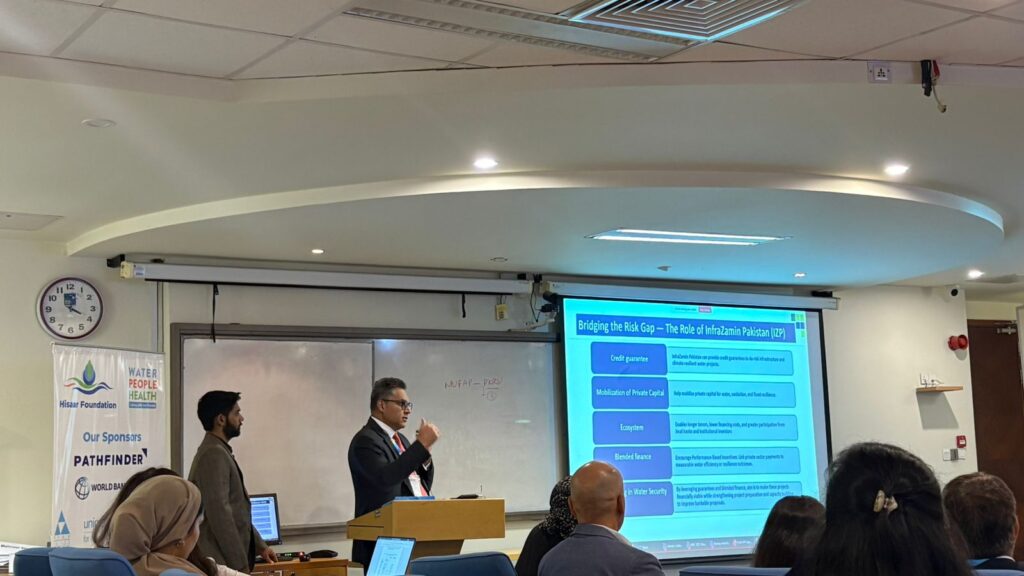
Senator Javed Jabbar, Senator Mushahid Hussain, and Simi Kamal concluded the session. Jabbar underscored the crucial role of local governments, while Hussain critiqued Pakistan’s recurring pattern of responding to natural disasters with the “three Cs” — Condolence, Compensation, and Commitment from foreign donors — without developing long-term resilience strategies.
Additional sessions covered three thematic streams: Water for People, Water for Health, and Water Justice. Discussions addressed South-South cooperation, health and food security, private sector roles, waterborne diseases during floods, and the Indus Water Treaty.
Prominent speakers included Dr. Pervaiz Amir, Dr. Awlad Hussain, Dr. Akissa Bahri, Johan Gely, Dr. Fazilda Nabeel, Dr. Mohammad Ashraf, Dr. Jai Das, Ali Tauqeer Sheikh, Favad Soomro, Farrah Naz, Mahmood Nawaz Shah, and Nasir Panhwar, among others.
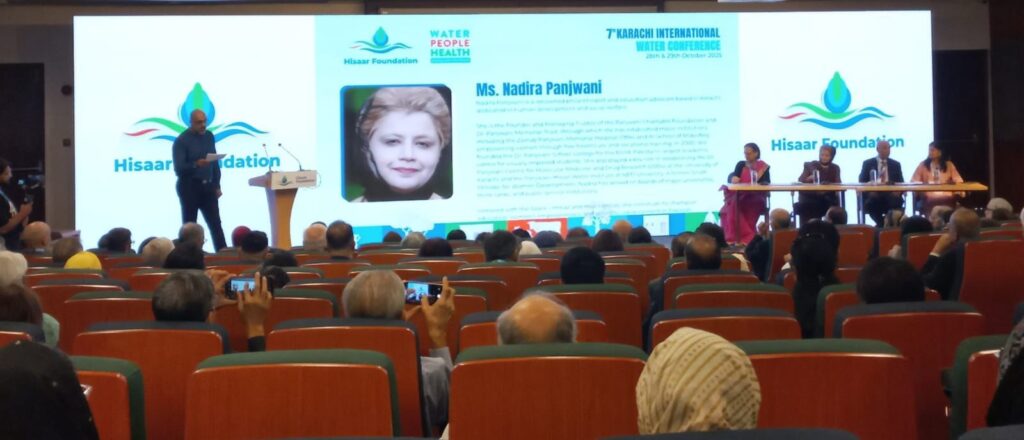
The conference continues tomorrow with in-depth panel discussions and collaborative sessions aimed at driving actionable solutions for Pakistan’s water and climate challenges.


